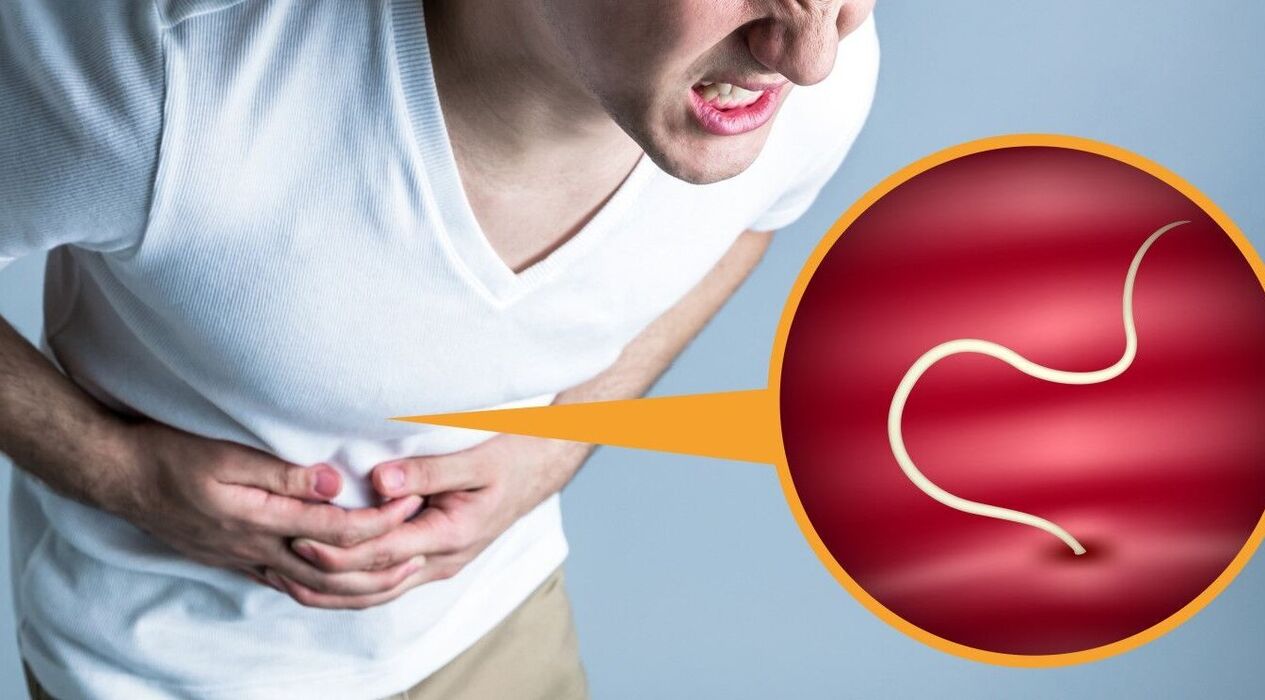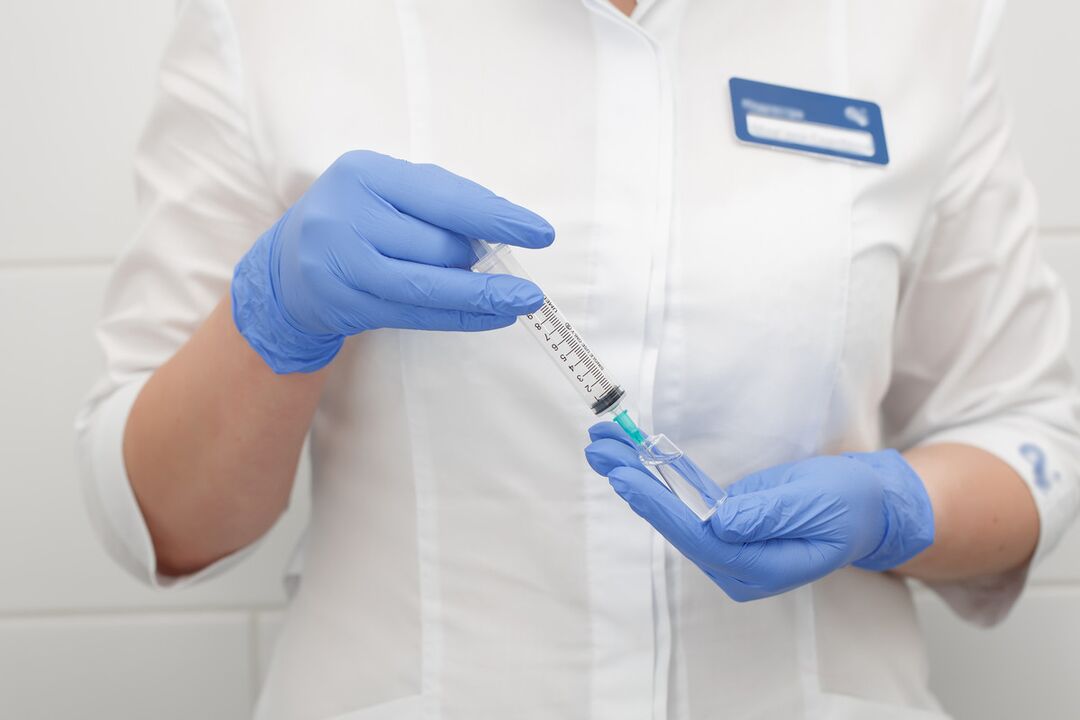
Worm infestations are observed in more than 1. 5 billion people. You can become infected with worms through food, raw water, or through contact with a sick person.
Helminthiasis or helminthic infestation is a group of diseases caused by parasitic worms that live in the human body. According to the latest data, 1 in 100 people are hidden carriers, and about 80% of new cases of the disease occur in children and adolescents. At the same time, helminthiases are recorded not only in underdeveloped countries: outbreaks of enterobiasis and ascariasis often occur in wealthy sections of the population.
The widespread distribution of helminthiases is explained by the asymptomatic course of the disease in the early stages. In addition, no symptoms of infestation occur if the number of parasites in the body is low. The patient may not suspect that parasites are present for a long time, but still infect others.
How dangerous are worms?
Today there are 360 known species of worms that are dangerous to humans. Most of them parasitize in the human intestine or liver, but depending on the type of parasite and its life cycle (egg, larva, adult), all organs and systems can be affected: lungs, heart, central nervous system, muscles, eyeballs, etc. Next.
The main damage caused by helminths is:
- gradual development of anemia (insufficient number of red blood cells).Worms consume nutrients from the intestines, as a result of which the body does not receive enough micro- and macroelements, the patient loses weight and suffers from vitamin deficiency;
- Destruction of organs and tissue.Many worms penetrate the intestinal walls and damage the surrounding tissue as they migrate. Microscopic wounds and ulcers form on organs, the gastrointestinal mucosa is constantly inflamed and the risk of infection increases;
- Pathologies of the nervous system.Worms not only destroy the tissues surrounding them, but also release waste products - toxins that have a destructive effect on the central and peripheral nerves. The patient becomes nervous, irritable and suffers from headaches, insomnia, lethargy and apathy;
- allergic reaction.Worm waste products (toxins) are also dangerous allergens. Therefore, with helminthic infestation, a rash often develops, itching occurs, and nausea and vomiting are possible.
Helminth infestation in children can lead to developmental delays and dangerous complications: from perforation (due to ulcers) of the intestines to paralysis of the arms and legs.
Typical representatives are helminths
The most common types of parasites include:
- Pinworms– Roundworms that invade the rectum and colon. Infection occurs when personal hygiene rules are not followed;
- Roundworms– Roundworms that attack the small intestine. During the development cycle they can travel with the blood and lymph flow and reach the lungs and heart;
- Whipworm- a roundworm that lives in the large intestine. It penetrates the mucous membrane with the help of a thin head, damaging the integrity of the tissue and causing microulcers;
- opisthorchis– Flatworms that attack the liver. Parasites clog the ducts, cause stagnation of bile and disrupt the normal functioning of the organ.
- curved heads- Roundworms that parasitize the duodenum. Infection occurs through contact with larvae, which penetrate the skin, enter the bloodstream and spread throughout the body;
- Bull tapeworm- a tapeworm that reaches a length of up to 10 meters. Occupies almost the entire intestine and causes severe exhaustion;
- Intestinal eel– Roundworms that invade the colon and appendix. To lay eggs, the worms move closer to the anus, causing severe itching in the anal area;
- Echinococci– Tapeworms, which not only affect the gastrointestinal tract, but also the liver and lungs. They cause echinococcosis, a disease in which cysts form in various organs of a person.

How are worms transmitted?
According to the WHO, more than 1. 5 billion people worldwide suffer from soil-transmitted helminthiases. There is a common misconception that you can only become infected with worms by eating low-quality foods: untreated water, unwashed fruits and vegetables, or unprocessed meat and fish. But that's not the case. Some parasites can penetrate through intact skin.
Helminth larvae penetrate the skin, penetrate the capillaries and spread throughout the body through the bloodstream. Such punctures are not sensitive to humans - it is quite difficult to suspect an infection. You can also become infected with parasites by inhaling microscopic eggs along with dust.
How do you know if you have worms?
Depending on which organs are affected by helminth infestation, patients may experience conjunctivitis, cough, headache, swelling, and tremors of the extremities. With severe vitamin deficiency, joint pain occurs, hair falls out, and nails begin to peel off. In children, helminthiasis can lead to delayed physical and mental development.
Common symptoms of worms in humans include:
- malaise, weakness, tiredness;
- Allergies such as rashes, coughs, asthma attacks;
- decreased or increased appetite;
- nausea, vomiting without intoxication;
- Stomach pain;
- diarrhea or constipation;
- weight loss, even if the appetite is good;
- sleep disorders, insomnia;
- inflamed or enlarged lymph nodes;
- fever without cause;
- Pain in muscles and joints without movement;
- snoring or grinding teeth while sleeping;
- presence of worms in feces;
- Itching in the anal area (often due to pinworms).
How to find out if worms are present?
It is impossible to independently determine the presence of helminthic infestation. In the early stages, the disease can be almost asymptomatic. The patient does not feel pain, the immune system is able to suppress the pathogenic effect of toxins and allergens for some time. As a rule, the exacerbation begins during larval migration or with an increase in the number of worms. The stronger the infestation (i. e. the more parasites), the more symptoms appear.
However, the asymptomatic course of the invasion is dangerous - the patient infects others and his health gradually worsens. In order to detect the disease, regular preventive examinations in the hospital are necessary. As part of prevention, the therapist prescribes tests for worms at least once a year. If you live in an endemic area: once every six months.
Helminth analysis
To determine helminthic infestation, the following tests may be prescribed:
- Stool analysis.The feces are examined for the presence of worm eggs. The analysis does not require any prior preparation: the patient only needs to bring a stool sample;
- Analysis for enterobiasis.To determine enterobiasis (a disease caused by pinworms), it is enough to take a smear (smear) from the anal area. Usually the test is prescribed in the morning before going to the toilet;
- Blood test for specific antibodies.The most insightful study that allows us to identify parasites such as roundworms, opisthorchis, acne and lamblia.
How long is a stool test for worms valid?
Specialists can detect worm eggs (if any) with a stool test for worms. This study does not provide a 100% guarantee of detection because the number of eggs depends on the life cycle of the worms and periodically they may not be detected in feces even though the invasion persists. Therefore, in most cases, doctors recommend doing a stool test two or three times with short intervals between tests.
Blood test for parasites
Blood testing for specific antibodies is the most conclusive method for detecting helminth infestation. After the analysis, the doctor can not only talk about the presence of worms, but also determine their type and thus select the most effective therapeutic complex.
Worms are recognized by the human immune system as pathogens: the body begins to produce specific antibodies to fight the parasites. This is what the analysis shows.
Which test for worms is better?
If a parasitic infection is suspected, the doctor will prescribe several tests. A comprehensive study allows you to determine the presence of worms with 100% accuracy and determine the type and stage of the life cycle. One cannot say that one analysis is better or worse: to increase the reliability of the diagnosis, several tests must be carried out.
Where to go if you suspect worms?
If you suspect a helminth infestation, you need to make an appointment with an infectious disease specialist. In the early stages, helminthiasis does not have specific symptoms, so it is quite difficult to suspect that you or a loved one have worms. As a rule, the patient complains of mild malaise: indigestion, headache, apathy.
If symptoms do not go away within a week or the condition recurs regularly (e. g. if you feel unwell every 3-4 months), you should consult your doctor. Bouts of poor health may be associated with parasite migration.
Which doctor treats worms in humans?
Treatment of parasitic infestations is carried out by an infectious disease specialist or a parasitologist. However, you should not immediately see a specialist, but rather consult a therapist. He will prescribe a series of tests and, if necessary, refer you to a parasitologist or gastroenterologist.
How to treat helminthiasis?
If worms are discovered, the doctor prescribes antiparasitic drugs aimed at combating a specific type of worm. Modern drugs are equally effective against worms at every stage of the life cycle: adults, larvae and eggs. In most cases, a single dose of tablets is enough, but sometimes medication is required - the treatment is developed by a therapist or parasitologist.
It is unacceptable to deviate from the developed treatment tactics - this can lead to the worm eggs remaining in the body, which subsequently leads to re-infestation.
In addition to antiparasitics, drugs to improve the gastrointestinal tract, vitamins to eliminate vitamin deficiencies, and antihistamines (against allergic reactions) can also be prescribed.
Helminthiasis: treatment with folk remedies
There are a sufficient number of methods for treating helminthiasis with folk remedies. Patients are recommended to consume numerous foods containing strong essential oils: for example, drinking clove infusions or eating garlic. Such methods are not only ineffective but also dangerous.
If the intestines are injured by worms, consumption of products with strong essential oils leads to additional irritation of the mucous membrane, increased pain and problems with bowel movements.
You should also not take anthelmintics without consulting your doctor. Some drugs cause the death of worms, but do not provoke their evacuation, i. e. H. They remain in the body, causing serious poisoning. Safe treatment of invasion is possible only under the supervision of an experienced doctor!
Helminthiasis prevention
Treatment of helminthiasis should be carried out not only by the patient, but by all family members. It is also necessary to boil bed linen and underwear and carry out wet cleaning with disinfectants. To prevent helminth infestation in the future, it is recommended:
- Control the quality of the food you eat: do not eat unwashed vegetables, fruits and herbs, unprocessed meat or raw fish;
- Observe the rules of personal hygiene and do not use other people's towels and utensils.
- Get a comprehensive exam once a year, including testing for worm eggs.
Helminth infections are easily treatable and, if detected in a timely manner, do not cause serious damage to the body. Therefore, it is important to seek medical help in a timely manner. To prevent helminthiasis, it is necessary to comply with hygiene rules and undergo regular medical examinations.
Popular questions
- Does someone lose weight if they have worms?
Weight loss is a possible, but not necessary, symptom of a parasite infestation. Weight loss due to parasitic diseases may be due to disruptions in the microflora and nutrient absorption processes in the intestine.
- How to remove worms without medication?
Parasitic diseases (worms) are treated medically with antiparasitic medications. Only a doctor can prescribe medication for worms. The choice of antiparasitic drugs depends on the type of worms.
- Why do worms come out?
The movement of worms in the human body is determined by the features of their life cycle. For most parasites, the spread and transmission only occurs when they disappear. When released, worms can be detected not only in feces, but also in sputum and exhaled air.
























